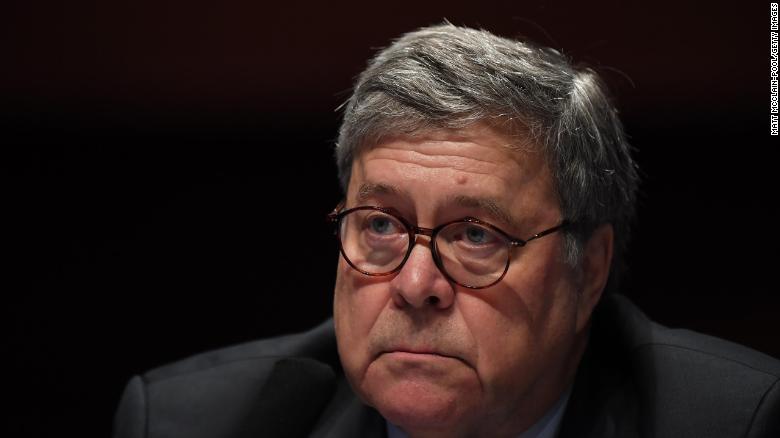Democratic South Carolina Rep. Jim Clyburn got right to the point when asked about Attorney General William Barr’s comment on Wednesday that lockdowns to stem the spread of the novel coronavirus were the “greatest intrusion on civil liberties” in US history “other than slavery.”
Speaking with CNN’s John Berman on “New Day,” the House majority whip distilled the absurdity at the heart of Barr’s words.
“I think that that statement by Mr. Barr was the most ridiculous, tone-deaf, God-awful thing I’ve ever heard,” Clyburn, long-time Black leader from South Carolina, said on Thursday. “It is incredible, as chief law enforcement officer in this country, to equate human bondage to expert advice to save lives. Slavery was not about saving lives. It was about devaluing lives.”
Slavery was not about saving lives. It was about devaluing lives. For hundreds of years, enslaved Africans were beaten, tortured, raped and treated as property.
Or as the author Isabel Wilkerson puts it in her new book, “Caste: The Origins of Our Discontents”: “The institution of slavery was, for a quarter of a millennium, the conversion of human beings into currency, into machines who existed solely for the profit of their owners, to be worked as long as the owners desired, who had no rights over their bodies or loved ones.”
In this system, African captives “could be mortgaged, bred, won in a bet, given as wedding presents, bequeathed to heirs, sold away from spouses or children to cover an owner’s debt or to spite a rival or to settle an estate,” Wilkerson writes.
That Barr painted a few months of being told — or really, in many cases, asked — to stay home during a global pandemic as even remotely in the same category as the practice of enslavement is ridiculous. (To say nothing of the fact that he skipped over, among other things, Jim Crow, Japanese internment during World War II, and the slaughter of Native Americans.)
But even during a summer that’s otherwise been seized by a racial reckoning, the attorney general’s comments are the furthest thing from surprising.
“No, I don’t think there are two justice systems. You know, I think the narrative that the police are on some, you know, epidemic of shooting unarmed Black men is simply a false narrative and also the narrative that that’s based on race,” Barr said earlier this month to CNN’s Wolf Blitzer, of the police shootings of Black Americans.
According to The Washington Post’s police shootings database, Black Americans are killed by police at more than twice the rate of their White counterparts, despite the fact that the former make up less than 13% of the country’s population.
In a similar vein, in August, Lynda Williams, the president of the National Organization of Black Law Enforcement Executives, confronted Barr during a closed-door gathering of national law enforcement leaders over his denial of systemic racism.
“I challenged him respectfully to think differently because just because you have not experienced that, it does exist,” Williams said in an interview.
And as my CNN colleague Maegan Vazquez reported in June, Barr’s callous handling of racial injustice in 2020 — using SWAT-like policing tactics to quell protests — mirrors the actions he took nearly three decades ago, following another infamous incident of police brutality.
“It was also Barr, serving as then-President George H.W. Bush’s attorney general, who helmed the federal response during 1992’s Los Angeles riots, which came after four officers were acquitted of beating Rodney King,” Vazquez wrote. “That was, in fact, the last time the Insurrection Act was invoked — the 1807 law allowing for the use of US military on US soil.”
People on the right sometimes toss around “slavery” in order to force a political argument. But that doesn’t make the false equivalency any less, well, false.
>>>>

